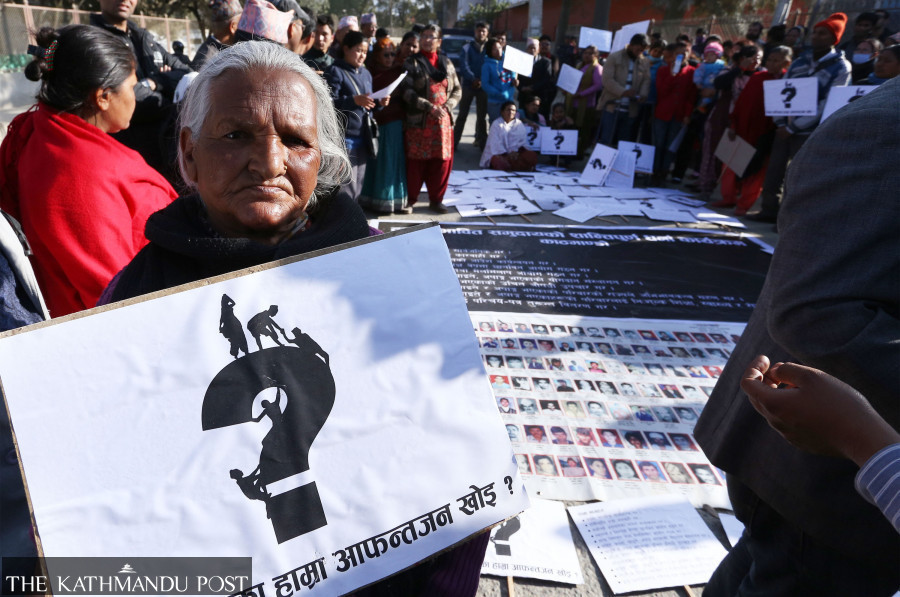National
Call for transitional justice nominees to face public hearings
Commission office bearers nomination committee set to endorse the working procedure after Tihar holidays.
Binod Ghimire
As the committee to nominate candidates for office bearers of the two transitional justice commissions starts the selection process, conflict victims and human rights activists have demanded mandatory public hearings for shortlisted candidates before making the nominations.
The concerned stakeholders made the demand while offering feedback on the working procedures for the selection of candidates. After finalising its working procedures, the committee published them on October 28 for public feedback until Wednesday. According to its members, the former chief justice Om Prakash Mishra-led panel has received several feedback through emails and phone calls.
As per the working procedures, the committee will call for public feedback by publishing the names of the short-listed candidates, ask the candidates to make presentations, and carry out other necessary tasks before selecting the candidates for appointment. The stakeholders, however, claim that presentations and public feedback alone are insufficient.
“It would be appropriate to establish a provision for public hearings with representative participation from the media, the victims’ community and civil society, where the individuals on the shortlist would be required to make presentations,” reads the recommendation from the Accountability Watch Committee, a network of human rights defenders.
Stating that former office-bearers of the commissions were handpicked based on political interests, the victims and the human rights defenders have been pressing the panel to adopt a transparent and credible nomination process.
“Those selected to lead the commissions must have significant experience, expertise, and contributions in human rights, conflict management and transitional justice. She/he must be victim-friendly, gender-sensitive, empathetic to suffering, able to work well with colleagues and groups, and skilled in communication and management,” reads the recommendations from Suman Adhikari, founding chairperson of the Conflict Victims Common Platform.
He has said only those who have no direct or indirect involvement to any party involved in the conflict, have no conflict of interest, and have no history of advocating for anyone accused of human rights violations, should be appointed to the commissions.
Constituted on October 18, the committee has a month and a half to nominate the chairpersons and members for the Truth and Reconciliation Commission and the Commission of Investigation on Enforced Disappeared Persons.
“We have received different types of feedback. We will try to accommodate the suggestions that are feasible while endorsing the working procedures,” Khamma Bahadur Khati, spokesperson for the committee, told the Post. The panel will endorse the working procedures on Tuesday after the Tihar holidays.
As per the working procedures, there are three ways to collect the names of candidates. First, the aspirants can apply directly within the deadline. Second, different victims’ and human rights organisations can recommend names, and lastly, the committee itself can pick eligible candidates. The provision of organisational recommendation and selection by the committee itself was included as renowned figures might not be willing to apply for positions in the commissions.
The aspirants will be given a week to file their applications once the working procedure is endorsed.
As per the recent amendment to the Enforced Disappeared Enquiry, Truth and Reconciliation Commission Act, a person qualified to be a Supreme Court justice is eligible to become chairperson of either of the commissions. Those who are eligible to become members must be qualified to be a high court judge. Each commission will have five members led by a chairperson.
The two commissions have been defunct since July 2022, when the government extended their terms without retaining their chairmen and members. The government claimed the bill to amend the transitional justice law would be endorsed by October 2022, and the appointments would be made based on the revised Act.
However, the federal parliament took over two years to endorse the bill. The victims and human rights defenders are now closely watching who will be appointed to the commissions.
The amended Act sets four years’ term for the two transitional justice commissions to investigate the cases and recommend prosecution and reparation. However, there is a possibility of term extension if they fail to accomplish their job.
The truth commission has received 63,718 complaints, while the commission on disappearances is sitting on around 2,400 cases. The commissions, first formed in 2015, have done little beyond collecting complaints and conducting preliminary investigations on some cases.
Earlier, on April 12, even before the Act was amended, the former government led by Pushpa Kamal Dahal had constituted a committee under Mishra to nominate candidates to the two commissions. The committee was formed following a ruling from the Supreme Court. But it couldn’t take full shape as the National Human Rights Commission (NHRC) refused to send its representative until the law was revised.
Two months after the Act was amended in August, the incumbent government on October 18 reconstituted the Mishra-led committee, replacing one of its members. While Arjun Karki, a former ambassador, and Stella Tamang, a rights activist, have been repeated in the new committee, Khati, a former attorney general, replaces Jagdish Sharma Poudel, a retired Supreme Court justice.
Commissioner Manoj Dawadi represents the NHRC in the Mishra-led committee. While the government picks four members for the committee, the fifth member is either the NHRC chairperson or someone nominated by him/her.




 18.12°C Kathmandu
18.12°C Kathmandu














